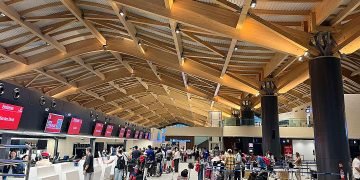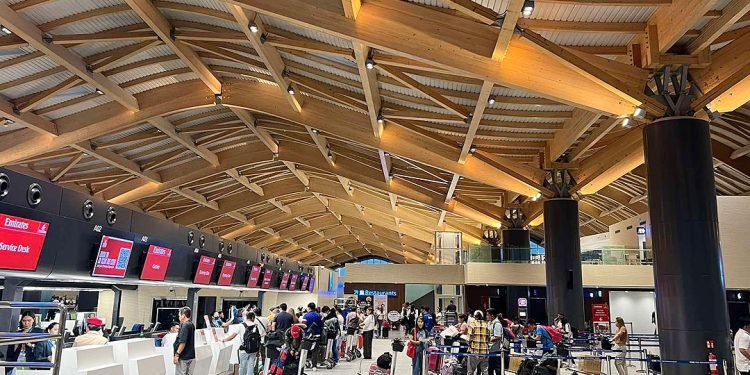Clark Freeport Zone | June 17, 2025
By Maria Kalamatas
Category: Aviation → Industry News
It wasn’t a new terminal, nor a flashy fleet announcement. But when officials stepped forward at dawn this Monday, what they introduced may shape Philippine aviation far more deeply than any runway ever could.
Standing on a quiet field adjacent to Clark International Airport, CIAC President Arrey Perez announced the creation of an Aviation Campus—a dedicated training, engineering, and logistics complex designed to position Clark as the country’s leading air freight and aerospace hub.
Not Just More Planes—More People Who Can Fly, Fix, and Manage Them
Perez didn’t mince words. “We don’t just need more cargo space. We need more people who know how to move that cargo safely, efficiently, and globally.” Behind him, renderings of simulation labs, maintenance hangars, and dormitories painted a vision that went well beyond concrete and glass.
The project aims to tackle a challenge often ignored in airport expansion: the human bottleneck. While runways can be paved in months, aviation professionals take years to train. Clark is choosing to begin now—before the shortage deepens.
Why Now, and Why Here?
The timing isn’t arbitrary. Air cargo in Asia-Pacific has bounced back faster than many predicted, especially in the Philippines, where volumes in the first half of 2025 are already up nearly 11% year-over-year.
Clark, less congested than Manila and connected by planned rail lines, offers both space and scalability. But what it lacked—until now—was the skilled talent pool to anchor long-term operations.
A Campus with Cargo in Mind
This is not a generic flight school. The curriculum, Perez explained, will focus heavily on aviation logistics: ground handling, aircraft maintenance, cargo flow optimization, and customs integration. The goal is to train not only pilots, but the entire workforce that keeps aircraft, and freight, moving.
“We’re teaching logistics as a living, breathing system,” said Maria del Pilar, head of educational programs at CIAC. “Because that’s what it is.”
A Strategic Bet on Self-Reliance
In a region still dependent on foreign-trained personnel and leased maintenance capacity, the Aviation Campus could change the calculus. By growing local expertise, Clark is betting on resilience, not just growth.
And while construction won’t begin until Q4, the message is already clear: the next phase of Philippine aviation won’t just fly higher. It will think smarter.





















